Secretariat of State for Equality Leads Activities to Promote Gender Equality and Women's Empowerment
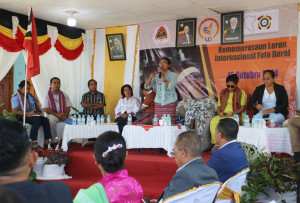
The Secretariat of State for Equality, led by Elvina Sousa Carvalho, carried out several activities last week to promote gender equality and women's empowerment in Timor-Leste. Among the actions were the celebrations for the International Day of the Girl Child, on October 11th, and the International Day of Rural Women, on October 15th, as well as other events such as the Seminar on Gender Sensitive Budgeting, the 3rd Congress of the Association of Women for Development in Manufahi and the Awareness Workshop on the Decentralisation and Local Government Law, aimed at strengthening political participation and women's rights. 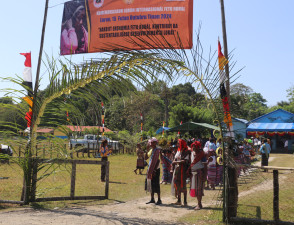
On October 15th, Elvina Sousa Carvalho attended the commemoration of International Rural Women's Day, held at the Barique Administrative Post, Manatuto Municipality. The event, with the theme “Strengthening the Rural Economy, Contributing to the Sustainability of Local Development”, emphasised the essential role of rural women in food security and the development of their communities. The Secretary of State stressed the importance of ensuring that rural women can access opportunities and resources that promote their autonomy and well-being. 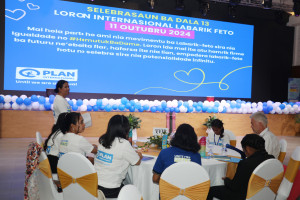
On October 11th, Elvina Sousa Carvalho also took part in the celebration of the International Day of the Girl Child, organised by PLAN Timor-Leste, at the GMN Multipurpose Hall in Dili. Under the theme “Together for Peace”, the event aimed to reinforce girls' roles and active participation in society. The Secretary of State said: “It is fundamental to strengthen the voice of girls, promoting their leadership role and building a more equal future in Timor-Leste”. Several national authorities and development partners attended the event. 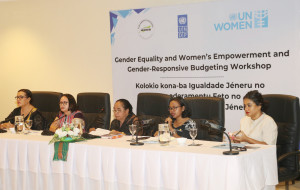
On the same day, the Secretary of State participated in the Seminar on Gender Sensitive Budgeting, held in partnership with UN Women, the United Nations Development Programme, and the National Parliament. The seminar, which brought together parliamentary leaders, focussed on integrating a gender perspective into the budget process. Elvina Sousa Carvalho emphasised the relevance of this approach, saying that “gender-sensitive budgeting allows public policies to respond more effectively to the needs of women and other vulnerable groups, promoting a more equitable society”. 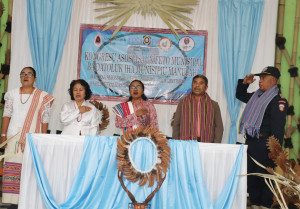
On October 10th, Elvina Sousa Carvalho took part in the 3rd Congress of the Association of Women for the Development of Manufahi (AFMADDEM – acronym in Tetun), where new female leaders were elected in the municipality of Manufahi. In her speech, the Secretary of State highlighted the association's important work in supporting local women and reaffirmed the Secretariat of State's commitment to continue collaborating with associations to promote social and economic development in Timor-Leste. 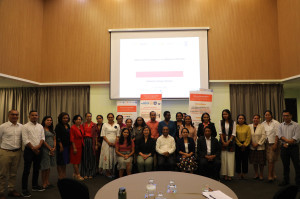
On October 14th, the Secretariat of State for Equality, in collaboration with UN Women Timor-Leste, held a meeting in Timor Plaza to validate priority indicators and data collection tools for the National Action Plan against Gender-Based Violence (PAN-VBG – acronym in Tetun). Ministries, civil society organisations and development partners participated in the meeting, focusing on the pillars of Prevention, Essential Services and Access to Justice. The work resulted in the approval of pilot indicators and questionnaires, reinforcing the collective commitment to combating gender-based violence in Timor-Leste. 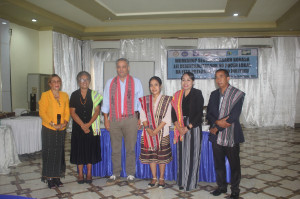
Lastly, on October 15th, 2024, SEI's National Director of Planning and Strategic Management, Maria Eusébia Soares Delima, opened the Awareness Workshop on Decentralisation and Local Government Law, aimed at women from political parties with parliamentary representation. The event held at the Delta Nova Hall in Dili aimed to increase the participants' knowledge of administrative decentralisation and municipal elections, strengthening their political participation and leadership in future elections. This activity, organised by the Secretariat of State for Equality, had the collaboration of the “Women Ready to Lead” Secretariat and the participation of members of various political parties with parliamentary seats.










































